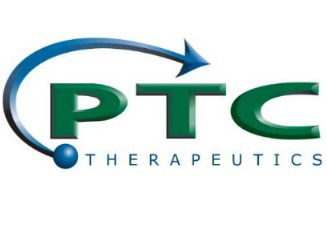
PTC Therapeutics reported on Oct. 25, 2017, that it received a Complete Response Letter from the U.S. Food and Drug Administration (FDA) indicating that the Office of Drug Evaluation of the FDA is unable to approve the company’s New Drug Application for ataluren (brand name Translarna) for the treatment of Duchenne muscular dystrophy (DMD) caused by a premature stop codon, or nonsense mutation, in its current form. Specifically, the letter indicated that evidence of effectiveness from an additional adequate and well-controlled clinical trial(s) will be necessary at a minimum to provide substantial evidence of effectiveness.
Stuart W. Peltz, chief executive officer of PTC Therapeutics indicated in the press release that they believe the FDA’s decision doesn’t consider the benefit-risk of Translarna and that the company plans to file a formal dispute resolution next week. Read PTC Therapeutics’ letter to the DMD community.
NDA filed over protest
PTC completed submission of its New Drug Application (NDA) to market Translarna in the U.S. in January 2016, but a month later received a Refuse to File letter from the FDA stating that the application was not sufficient to permit a substantive review. It submitted an appeal in July 2016 to the next level of FDA management and reported in October that the appeal had been denied. In March 2017, the company reported that it had used the FDA’s “file over protest” regulations to file the NDA and that the FDA had agreed to review the drug.
Today’s news comes following an FDA advisory committee meeting Sept. 28, at which committee members discussed the data provided by PTC in support of its NDA. In a vote on the best interpretation of the information discussed in the meeting, 10 panel members voted for the statement: Although it is possible that ataluren may be effective, the data are inconclusive, and more work would be needed to establish whether ataluren is effective. One panel member voted for the option that stated: The data are sufficient to conclude that ataluren is effective.
Translarna targets ‘nonsense’ or ‘premature stop codon’ mutations
Translarna is designed to treat DMD caused by a type of genetic mutation known as a nonsense mutation or premature stop codon. This type of mutation causes the muscle cell to stop reading the genetic code used to manufacture the muscle protein dystrophin before it reaches the end of the genetic instructions, thus preventing production of the protein.
A “readthrough” drug, Translarna is designed to act by changing the way muscle cells interpret genetic information, coaxing them to produce a needed muscle protein called dystrophin despite the presence of a nonsense mutation in the dystrophin gene. The drug, which is taken by mouth, may help approximately 13 percent of people with DMD.
Translarna has demonstrated mixed results
In October 2015, PTC announced results from its phase 3 “ACT DMD” clinical trial of Translarna, which demonstrated that the drug failed to meet its primary endpoint. However, a post-hoc analysis indicated that the drug may slow functional decline in a subset of DMD patients, while other patients were not responsive to treatment. Among those who responded, treatment was associated with statistically significant improvements to several clinical outcome measures.
Translarna received “conditional approval” in the European Union in August 2014 for use in people with DMD caused by a nonsense mutation who are at least 5 years old and able to walk.
MDA has funded groundbreaking DMD research for over 65 years, including early laboratory development and testing of Translarna, and has facilitated direct patient care to tens of thousands of individuals living with DMD over more than half a century.
Be sure to check back at mda.org for updates as they become available.
